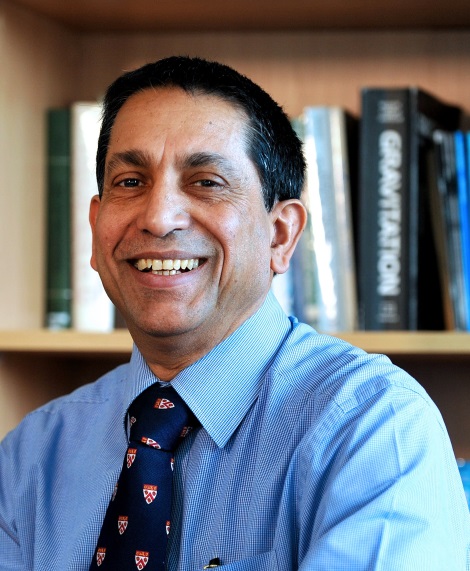应我校管理学院和数学学院联合邀请,英国Brunel大学皇家科学院院士Asoke K. Nandi教授于8月8日至8月11日访问我校。访问期间于8月8日上午10点在管理学院315会议室做题为“Consensus Clustering Paradigms in Big Data”的学术报告,欢迎广大师生参与!
Consensus Clustering Paradigms (Big Data)
Professor Asoke K. Nandi PhD FREng FIEEE FIET FIMA FInstP FRSA FIMechE FBCS
Head of Department of Electronic and Computer Engineering
Brunel University London, Uxbridge, UB8 3PH, United Kingdom
Personal website: http://www.brunel.ac.uk/people/asoke-k.-nandi
Email: asoke.nandi@brunel.ac.uk

Abstract: Clustering techniques have been developed and applied in many areas for several decades. In particular, they have been used for gene clustering over the last two or three decades in bioinformatics and brain signal processing. New algorithms are being developed and applied to address many different problems. However, in applications with real data with little a priori knowledge, it is often difficult to select an appropriate clustering algorithm and evaluate the quality of clustering results due to the unknown ground truth. It is also the case that conclusions based on only one specific algorithm might be biased, since each algorithm has its own assumptions of the structure of the data, which might not correspond to the real data.
Another important issue relates to multiple datasets, which may have been generated either in the same laboratory or different laboratories at different times and with different settings yet trying to conduct the similar experiments. In such a scenario, one has essentially a selection of heterogeneous datasets on similar experiments. The challenge is how to reach consensus conclusions in such scenarios.
This plenary presentation will address both of the aforementioned issues and discuss how Bi-CoPaM and UNCLES can solve both the issues. This presentation will include examples of results from some bioinformatics and brain signal processing, although these can be applied to all applications areas involving clustering.
Bio-Sketch: Professor Asoke K. Nandi received the degree of Ph.D. in Physics from the University of Cambridge (Trinity College), Cambridge (UK). He held academic positions in several universities, including Oxford (UK), Imperial College London (UK), Strathclyde (UK), and Liverpool (UK) as well as Finland Distinguished Professorship in Jyvaskyla (Finland). In 2013 he moved to Brunel University (UK), to become the Chair and Head of Electronic and Computer Engineering. Professor Nandi is a Distinguished Visiting Professor at Tongji University (China) and an Adjunct Professor at University of Calgary (Canada).
In 1983 Professor Nandi contributed to the discovery of the three fundamental particles known as W+, W− and Z0 (by the UA1 team at CERN), providing the evidence for the unification of the electromagnetic and weak forces, which was recognized by the Nobel Committee for Physics in 1984. His current research interests lie in the areas of signal processing and machine learning, with applications to communications, gene expression data, functional magnetic resonance data, and biomedical data. He has made many fundamental theoretical and algorithmic contributions to many aspects of signal processing and machine learning. He has much expertise in “Big Data”, dealing with heterogeneous data, and extracting information from multiple datasets obtained in different laboratories and different times. He has authored over 500 technical publications, including 200 journal papers as well as four books, entitled Automatic Modulation Classification: Principles, Algorithms and Applications (Wiley, 2015), Integrative Cluster Analysis in Bioinformatics (Wiley, 2015), Automatic Modulation Recognition of Communications Signals (Springer, 1996), and Blind Estimation Using Higher-Order Statistics (Springer, 1999),. Recently he published in Blood, BMC Bioinformatics, IEEE TWC, NeuroImage, PLOS ONE, Royal Society Interface, and Signal Processing. The h-index of his publications is 63 (Google Scholar).
Professor Nandi is a Fellow of the Royal Academy of Engineering and also a Fellow of seven other institutions including the IEEE and the IET. Among the many awards he received are the Institute of Electrical and Electronics Engineers (USA) Heinrich Hertz Award in 2012, the Glory of Bengal Award for his outstanding achievements in scientific research in 2010, the Water Arbitration Prize of the Institution of Mechanical Engineers (UK) in 1999, and the Mountbatten Premium, Division Award of the Electronics and Communications Division, of the Institution of Electrical Engineers (UK) in 1998.